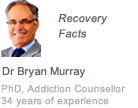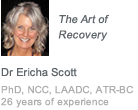Cocaine Addiction
Cocaine is one of the most used and abused drugs in America and cocaine addiction has become a problem of huge proportion. Recognizing that you, or someone you know, has an addiction to cocaine is not always easy, but knowing about cocaine; what it does, how it does it and what the effects of cocaine addiction can be will help you to determine if recreational use has tipped into addiction or dependency.
What is cocaine and cocaine addiction?
Regarded by those who indulge as the ‘caviar’ of so-called recreational drugs, cocaine is a highly addictive drug made from the coca plant that is indigenous in South America. Cocaine addiction and dependency affect all strata of our society. Cocaine is a powerful stimulant that produces feelings of strength, alertness and sociability. That, plus ready availability at a price many people believe they can afford, has made cocaine use an almost socially acceptable habit. Cocaine can be bought on the street in different forms that are used in a variety of ways:
Sniffing – Users arrange a couple of strips of cocaine powder on a smooth surface and, using a straw made from whatever is handy, sniff the cocaine first up one nostril and then the other.
Smoking – To prepare cocaine for smoking it is heated with baking soda or ether to form small nuggets, known as rocks. This form of cocaine cannot be dissolved in water and is only smoked. The conversion to rocks removes almost all substances from cocaine powder so it is highly potent.
Injecting – Cocaine is dissolved in water for intravenous use. Taken this way, cocaine reaches the brain in seconds. It is not unusual to mix other drugs, for example Heroin, with the dissolved Cocaine.
The effects of cocaine addiction
A cocaine-high produces an intense euphoria that can make users feel incredibly powerful, energetic, and gregarious – pretty much on top of the world. This does not last long and as the drug wears off a user can feel exhausted, depressed and lethargic.
It is like a roller coaster, but each time the high gets shorter and the come-down gets harder. Cocaine addicts keep using the drug because it makes them feel good, while often not realising that they are caught in a cycle of highs and lows, of thinking about and looking for the next high above everything else. A cocaine user’s behaviour will change as they move into dependency and addiction.
Recognizing cocaine addiction
There are many markers of an addiction to cocaine – changes in routine, lack of interest in family and friends, ignoring their work or not doing it properly, always needing a bit more money – but not paying bills. There are physical signs that, in combination with unexplained changes in character and behaviour, point clearly to cocaine addiction.
When they are high cocaine addicts may do things that afterwards they do not remember, while during a come-down they might seem to be not quite with everyone, a little confused, they may have periods of time for which they genuinely cannot account.
Cocaine addicts may have episodes of huge energy, which is one of the effects they crave, followed by prolonged periods of inactivity and lethargy. The enormous rush of energy that an addict feels when they have taken cocaine will dilate their pupils and make them hyper-active so that they talk at great speed and seem unable to sit still for any length of time.
Many cocaine addicts lose all interest in food and eating, they will lose weight at a rapid pace and their skin, hair and nails may show signs of malnourishment. They may lose interest in sexual activity, and when they are not high on cocaine they can be moody or irritable.
Addicts who take cocaine by sniffing it will suffer residual damage to the nasal membranes and may have a constantly running nose, or, conversely, a continuously stuffed nose.
Long term effects of cocaine addiction
Cocaine addicts run the risk of many serious problems if they keep on using. Long term some of the negative physical effects can be a deterioration of their sight, or suffering blurred vision, chest pains, heart attacks and heart disease, strokes and seizures. Of course there are many other problems that addicts could face. As they lose interest in work they may lose their job, and so will have no money. In turn this can lead to selling anything they can, including household goods, even if those goods do not belong to them. Cocaine addicts will do almost anything to get the drug.
Helping a cocaine addict
Dealing with cocaine addiction is one of our biggest challenges. It reaches all levels of our society, touches millions of people as they try to understand what the addict is going through and how they can help. There are many approaches to helping an addict, but the first positive step is for the individual to recognise they have a problem and accept that it is possible to overcome it, although it is not easy or quick.
Addicts will need advice, support, acceptance and tolerance from themselves, their family and their friends. Often a complete cocaine rehab and detox programme will be a major turning point. Once they are clean addicts can look back and understand the steps that led to their situation. With appropriate guidance they can develop strategies for dealing with problems as they rebuild their lives. They will need to confront past mistakes and make good where and when they can. It is a long hard struggle to beat addiction of any kind, and cocaine addiction recovery is one of the hardest of them all.












